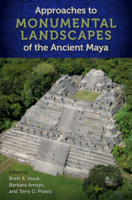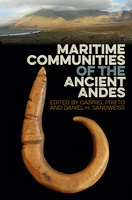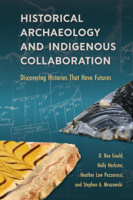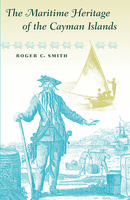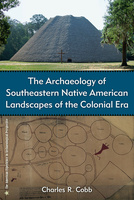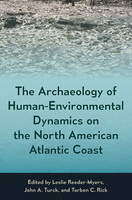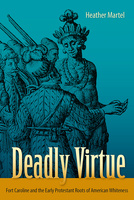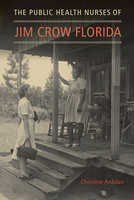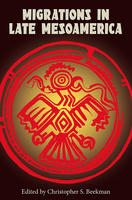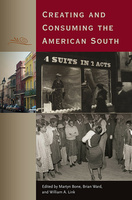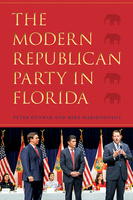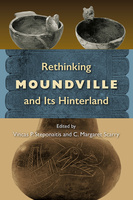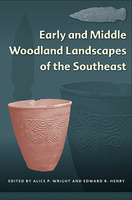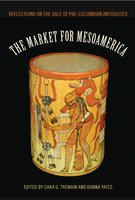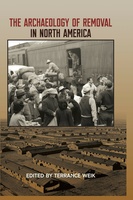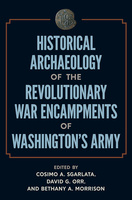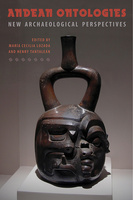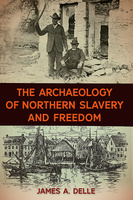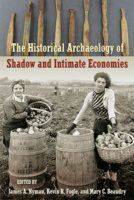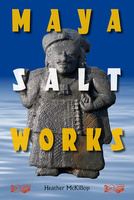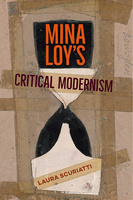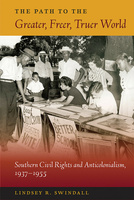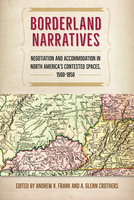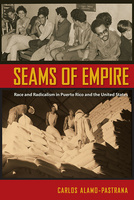Maritime Communities of the Ancient Andes
Historical Archaeology and Indigenous Collaboration
Discovering Histories That Have Futures
Highlighting the strong relationship between New England’s Nipmuc people and their land from the pre-contact period to the present day, this book helps demonstrate that the history of Native Americans did not end with the arrival of Europeans. This is the rich result of a twenty-year collaboration between Indigenous and nonindigenous authors, who use their own example to argue that Native peoples need to be integral to any research project focused on Indigenous history and culture.
The Archaeology of Southeastern Native American Landscapes of the Colonial Era
This volume describes the ways Native American populations accommodated and resisted the encroachment of European powers in southeastern North America from the arrival of Spaniards in the sixteenth century to the first decades of the American Republic. Tracing changes to the region’s natural, cultural, social, and political environments, Charles Cobb provides an unprecedented survey of the landscape histories of Indigenous groups across this critically important area and time period.
The Archaeology of Human-Environmental Dynamics on the North American Atlantic Coast
Deadly Virtue
Fort Caroline and the Early Protestant Roots of American Whiteness
NASA and the Long Civil Rights Movement
Borderland Smuggling
Patriots, Loyalists, and Illicit Trade in the Northeast, 1783-1820
The Liberal Consensus Reconsidered
American Politics and Society in the Postwar Era
Here, leading scholars—including Hodgson himself—confront the longstanding theory that a liberal consensus shaped the United States after World War II. The essays draw on fresh research to examine how the consensus related to key policy areas, how it was viewed by different factions and groups, what its limitations were, and why it fell apart in the late 1960s.
Migrations in Late Mesoamerica
Creating and Consuming the American South
The contributors emphasize how narratives and images of "the South" have real social, political, and economic ramifications, and that they register at various local, regional, national, and transnational scales.
The Modern Republican Party in Florida
Rethinking Moundville and Its Hinterland
A much-needed synthesis of the rapidly expanding archaeological work that has taken place in the Moundville region over the past two decades, this volume presents the results of multifaceted research and new excavations.
Early and Middle Woodland Landscapes of the Southeast
Fourteen in-depth case studies incorporate empirical data with theoretical concepts such as ritual, aggregation, and place-making, highlighting the variability and common themes in the relationships between people, landscapes, and the built environment that characterize this period of North American native life in the Southeast.
The Rosewood Massacre
An Archaeology and History of Intersectional Violence
The Rosewood Massacre investigates the 1923 massacre that devastated the predominantly African American community of Rosewood, Florida. The town was burned to the ground by neighboring whites, and its citizens fled for their lives. None of the perpetrators were convicted. Very little documentation of the event and the ensuing court hearings survives today.
Roaring Reptiles, Bountiful Citrus, and Neon Pies
An Unofficial Guide to Florida’s Official Symbols
With an eye for the illogical and a flair for the irreverent, journalist Mark Lane aims his sharp wit at one of the most intriguing duties of the Florida legislature—signing state symbols into law. In Roaring Reptiles, Bountiful Citrus, and Neon Pies, he spotlights nineteen things that have been proposed and/or appointed to officially define Florida.
Sallie Ann Robinson's Kitchen
Food and Family Lore from the Lowcountry
Shaping Identity in Medieval French Literature
The Other Within
Contributors to this collection consider the multiplicity and instability of medieval French literary identity, arguing that it is fluid and represented in many different ways. Inherently unstable, identity is created, re-created, adopted, refused, imposed, and self-imposed. Additionally, taken together the essays posit that an individual may identify with a group, existing within it, and yet remain foreign to it.
Captain Kidd's Lost Ship
The Wreck of the Quedagh Merchant
The troubled chain of events involving Captain Kidd’s capture of Quedagh Merchant and his eventual execution for piracy in 1701 are well known, but the exact location of the much sought-after ship remained a mystery for more than 300 years. In 2010, a team of underwater archaeologists confirmed that the sunken remains of Quedagh Merchant had finally been found off the coast of the Dominican Republic.
Jacksonville
The Consolidation Story, from Civil Rights to the Jaguars
The decision to consolidate with surrounding Duval County began the transformation of this conservative, Deep South, backwater city into a prosperous, mainstream metropolis.
Fort St. Joseph Revealed
The Historical Archaeology of a Fur Trading Post
The Market for Mesoamerica
Reflections on the Sale of Pre-Columbian Antiquities
This timely volume explores past, current, and future policies and trends concerning the sales of antiquities from pre-Columbian Mesoamerica, which are among the most popular items on the international antiquities market
The Archaeology of Prostitution and Clandestine Pursuits
The Archaeology of Removal in North America
Historical Archaeology of the Revolutionary War Encampments of Washington’s Army
Andean Ontologies
New Archaeological Perspectives
The Letters of George Long Brown
A Yankee Merchant on Florida's Antebellum Frontier
This book collects previously unpublished letters written by a merchant in north Florida before the Civil War, offering a view of the region’s transformation to a market economy due in part to its increased reliance on slavery.
The Archaeology of Northern Slavery and Freedom
Excavations at cities including New York and Philadelphia reveal that slavery was a crucial part of the expansion of urban life as late as the 1840s. The case studies in this book also show that enslaved African-descended people frequently staffed suburban manor houses and agricultural plantations. Moreover, for free blacks, racist laws such as the Fugitive Slave Act of 1850 limited the experience of freedom in the region. Delle explains how members of the African diaspora created rural communities of their own and worked in active resistance against the institution of slavery.
United States Reconstruction across the Americas
Historians have examined the American Civil War and its aftermath for more than a century, yet little work has situated this important era in a global context. Contributors to this volume open up ways of viewing Reconstruction not as an insular process but as an international phenomenon.
Maya Salt Works
In Maya Salt Works, Heather McKillop details her archaeological team’s groundbreaking discovery of a unique and massive salt production complex submerged in a lagoon in southern Belize. Exploring the organization of production and trade at the Paynes Creek Salt Works, McKillop offers a fascinating new look at the role of salt in the ancient Maya economy.

